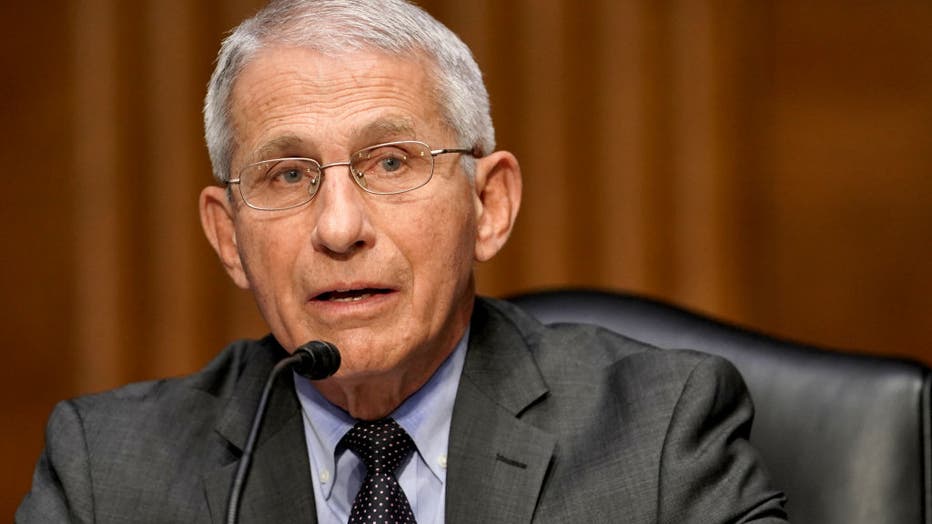US to invest $3B in antiviral pills to treat COVID-19, other viruses
WASHINGTON - The United States will invest more than $3 billion to develop antiviral pills to treat COVID-19 and other dangerous viruses that have "pandemic potential."
The pills for COVID-19 would be used to minimize symptoms after a person is infected and are currently in development, officials said. The treatment could begin arriving by year's end, pending the completion of clinical trials.
The $3.2 billion in funding, which comes from the American Rescue Plan, will go toward those clinical trials and provide additional support for private-sector research, development and manufacturing.
"New antivirals that prevent serious COVID-19 illness and death, especially oral drugs that could be taken at home early in the course of disease, would be powerful tools for battling the pandemic and saving lives," Dr. Anthony Fauci, the nation’s top infectious disease expert, said in a statement from the Department of Health and Human Services.
Fauci discussed the investment Thursday during a White House COVID-19 briefing and said vaccines "clearly remain the centerpiece of our arsenal against COVID-19." But he noted how the antiviral drugs can serve as an important complement to the existing shots, particularly for individuals with certain conditions for whom vaccines may not be protective.
Fauci said the new program would invest in "accelerating things that are already in progress" for COVID-19, while also working to innovate new therapies for other viruses.
"There are few treatments that exist for many of the viruses that have pandemic potential," he added, including Ebola, dengue, West Nile and Middle East respiratory syndrome.

FILE - Dr. Anthony Fauci, director of the National Institute of Allergy and Infectious Diseases, speaks during a Senate Health, Education, Labor and Pensions Committee hearing to discuss the ongoing federal response to COVID-19 on May 11, 2021, in Wa
The U.S. has approved one antiviral drug, remdesivir, specifically for COVID-19, and allowed emergency use of three antibody combinations that help the immune system fight the virus. But all the drugs have to given by IV at hospitals or medical clinics, and demand has been low due to these logistical hurdles.
Health experts have increasingly called for a convenient pill that patients could take themselves when symptoms first appear. Some drugmakers are testing such medications, but initial results aren’t expected for several more months.
Last week, the U.S. said it would purchase 1.7 million doses of an experimental antiviral pill from Merck, if it is shown to be safe and effective. Results from a large study of the drug, molnupiravir, are expected this fall. Early research suggests the drug may reduce the risk of hospitalization if used shortly after infection by stopping the coronavirus from quickly reproducing. It did not benefit patients who were already hospitalized with severe disease.
Several other companies, including Pfizer, Roche and AstraZeneca, are also testing antiviral pills.
Until this week, the only medicines shown to boost survival were steroids given to patients sick enough to need extra oxygen and intensive care. But on Wednesday, U.K. researchers reported that one of the antibody combinations successfully reduced deaths in a large study of hospitalized COVID-19 patients.
RELATED: Regeneron antibody drug reduces death in COVID-19 hospitalized patients, study finds
Officials on Thursday noted the "remarkable and rapid development of vaccines" in 2020 and said researchers aim to harness the same "power of American ingenuity" to spur the creation and development of drugs that can be used in the U.S. and abroad.
"We will leverage these same strengths as we construct a platform for the discovery and development of effective antivirals that will help us defeat COVID-19 and better prepare us for potential future viral pathogens," Dr. Francis S. Collins, director of the National Institutes of Health, said in the statement.
This story was reported from Cincinnati. The Associated Press contributed.

